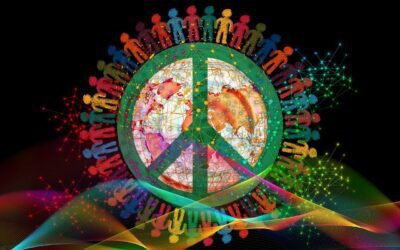Introduction
The notion of “back to barbarism” evokes a complex and often controversial discourse on the fragility of civilisation and the potential for societal regression. This social regression in the past and present world became very loud and prominent and difficult to ignore. The obvious discrimination, restrictions of freedom of speck, justice for strong, recession, economic discrimination, global discrimination, violence and survival of the fittest seems to be the key as it was in so called uncivilised era of humanity. The number of human killings are at its peak, including extra judicial killings, a very pertinent example from today’s world is Drone attacks. While the term “barbarism” carries historical and cultural connotations, its modern interpretation can encompass a broad spectrum of behaviours and conditions that signify a departure from civilised norms. This blog explores the concept of returning to barbarism through various lenses, examining historical precedents, contemporary examples, and the underlying psychological and sociopolitical mechanisms that drive such a regression.
Historical Context and Definitions
To understand the concept of returning to barbarism, it is essential first to define what we mean by “barbarism.” Historically, the term originates from the Greek word “barbaros,” used to describe foreign peoples who were perceived as uncivilised or primitive. Over time, the concept evolved to represent a lack of cultural, moral, and social refinement. In modern discourse, barbarism can be understood as behaviours or societal conditions that reflect a breakdown of order, ethical standards, and mutual respect, often characterised by violence, oppression, and the erosion of human rights.
Throughout history, periods of barbarism have often followed the collapse of great civilisations. The fall of the Roman Empire, for instance, led to the so-called Dark Ages in Europe, a time marked by political fragmentation, social instability, and cultural decline. Similarly, the end of the Bronze Age saw the destruction of sophisticated societies in the Mediterranean, replaced by less advanced and more warlike cultures.
Modern Manifestations of Barbarism
In the contemporary world, the return to barbarism is not merely a theoretical concern but a tangible reality in various contexts. From the rise of authoritarian regimes and inequality of resources to the failure of international organisations, numerous examples illustrate how modern societies can regress into barbaric states.
- Rise in Authoritarianism
One of the most glaring examples of modern barbarism is the rise of authoritarianism. The modern world which was created on the basic rules of equality, justice, freedom of speech and education actually lost its direction. It rather focussed towards financial and authoritarian designs to control the world which I call as financial slavery. The world certainly freed itself from old design of physical slavery but got caught up in financial slavery.
These financial systems enable wealthy states to dominate poorer ones by influencing their policies, production, natural resources, legislation, import/export practices, voting rights, freedom of expression, and ultimately, their right to exist as sovereign nations.
- Inequality of Resources
Another manifestation of modern barbarism is the resurgence of inequality of resources, whether wealth or food. It does not only refers to differences between people across countries. This may be economic differences between countries as well as medical care and education differences.
The overall pattern is that as populations become wealthier, they have increased access to these basic resources and consume more. This means that as countries become wealthier over time they can expect their populations to consume more natural resources.
In a sense, the principle of survival of the fittest remains as relevant in today’s world as it was in ancient times (Barbarism).
- Failure of International Organisations
The international organisations The League of Nations and United Nations were / are created to maintain world peace and ensure implementation of international laws.
The League of Nations was founded in 1920, aiming to keep peace in the world. The United States never joined the league and it did not have its force. The League of Nations lacked its own armed forces and relied upon the great world powers to enforce its resolutions. Unfortunately, however, the great powers often were reluctant to step up. Ultimately, the League proved incapable of preventing aggression by the Axis powers in the 1930s. And Germany withdrew from the League, as did Italy, Japan, Spain, and others.
The United Nations was created with the hope of an international cooperation to prevent another conflict such as World War II. The UN Charter was written mainly to prevent aggression by one state against another, in early 1990s, the UN faced a number of simultaneous crises in places like Mozambique, the former Yugoslavia, Haiti, and Somalia.
The United Nations, like its predecessor League of Nations, of course has not caused warfare to cease. Regrettably, war still is a present fact of international life. We need to uncover the underlying reasons, powers, issues, conspiracies, and intentions of powerful and wealthy nations. It’s essential to determine whether these rich countries are acting positively by refraining from manipulating international laws and organizations for their personal gain.
- Violent Extremism and Terrorism
Violent extremism and terrorism are other modern expressions of barbarism. Groups like Al-Qaeda, Boko Haram, and ISIS use terror as a weapon to achieve their political and ideological goals, often targeting civilians in the most horrific ways.
These extremist groups often justify their actions through twisted interpretations of religious or ideological doctrines, portraying their violent campaigns as a fight for a righteous cause. However, the methods they employ—suicide bombings, mass shootings, kidnappings, and torture—are antithetical to the principles of civilization and human decency.
We need to examine the roles that international organisations and powerful countries have played in curbing these violent organisations worldwide and the reasons. It is crucial to identify who funds them and provides them with the latest weaponry, including enabling their movement from one country to another. We must question why investigations and reports are not disclosed to the media, what actions were taken, who was punished, and what the future steps are. Global powers must reveal the facts so the world can know who is responsible for acts of terror across the globe.
Psychological and Sociopolitical Mechanisms
Understanding the psychological and sociopolitical mechanisms that drive societies toward barbarism is crucial for preventing such regression. Several factors can contribute to the breakdown of civilised norms and the rise of barbaric behaviours.
- Fear and Insecurity
Fear and insecurity are powerful motivators that can lead individuals and groups to embrace barbarism. In times of crisis or perceived threat, people often revert to primal survival instincts, prioritising self-preservation over empathy and cooperation. This can manifest in the form of xenophobia, scapegoating, and the demonization of perceived enemies. Leaders who exploit these fears to consolidate power can push societies toward authoritarianism and violence.
- Economic and Social Inequality
Economic and social inequality can create fertile ground for barbarism by fostering resentment, anger, and a sense of injustice. When people feel marginalised or oppressed, they may become more susceptible to radical ideologies and violent behaviour. Inequality can also weaken social cohesion and erode trust in institutions, making it easier for demagogues and extremists to gain influence. The impact is not only within that country but across the borders and creates barriers to develop a globalised system of coherence and peace.
- Erosion of Democratic Norms
The erosion of democratic norms and institutions is another pathway to barbarism. When checks and balances are undermined, and the rule of law is disregarded, societies become vulnerable to authoritarianism and corruption. Leaders who dismantle democratic institutions often do so to entrench their power, leading to a breakdown of civil liberties and human rights. The rise of populist leaders who challenge democratic norms in countries like Hungary, Poland, and the United States is a concerning trend that could pave the way for more overt forms of barbarism.
- Failure of Justice System
At the 21st century, probably for the first time in the history of mankind, we would have the resources and the knowledge to provide decent, safe, and fair living conditions for every single human being on the planet. And we would be able to do so in an environmentally responsible and sustainable way, without eating our children’s lunch today.
Unfortunately, we seem to have more failing states, more atrocious civil wars, more xenophobia and intolerance, more hatred, and more poverty and desperation around the world than ever before. While we may be making progress in material terms, it does not translate into better lives for the many, better protection of human rights, minorities, equal distribution of resources, and the natural environment, and generally better perspectives for the future.
When justice systems fail, “Rule of Law” does not exist and law as an autopoietic systems does not work. When justice systems fail, laws and lawyers become instruments of injustice and oppression rather than swords and shields fighting for justice and equality. When justice systems fail, laws and lawyers are degraded to the status of fig leaves, hiding the nakedness of the emperor. They become the tools that keep bad people in power and put good people in jail. When justice systems fail, the very elements of the justice system become obstacles to justice. Instead of being the cure, laws and lawyers become part of the disease
When justice systems fail, the weakest members of society—whether individuals, countries, minorities, or vulnerable groups—are the first to bear the consequences. In such scenarios, human rights violations often lead to even worse protection for the natural environment. Moreover, there is undeniable evidence that societies marked by inequality and injustice are inherently unstable.
Preventing a Return to Barbarism
Preventing a return to barbarism requires a multifaceted approach that addresses the root causes of societal regression and promotes the values of civilization. This involves strengthening democratic institutions, fostering social cohesion, promoting empathy and compassion, and addressing economic and social inequalities.
- Role of International Organisations
As previously noted, international organizations have thus far failed to fulfil their roles according to their charters. We must avoid repeating the history of the League of Nations. All international monetary and financial organizations should treat all countries equally, without imposing restrictions or conditions that could jeopardize their sovereignty. Failing to do so would amount to colonialism and undermine the concept of globalisation.
The United Nations plays a crucial role in maintaining global peace, justice, equality, freedom of speech, human rights, and the provision of healthcare worldwide. However, it has so far failed to ensure equal rights for all people, resulting in numerous wars and conflicts that have claimed many lives.
- Promoting Social Cohesion
When you’re talking about how connected and united members of the society are, you’re referring to social cohesion. Social cohesion is the situation occurs when people willingly work and cooperate despite the existing differences in their demeanour, culture, and beliefs.
Building social cohesion involves creating a sense of belonging and mutual respect among diverse groups within society. This can be achieved through inclusive policies, dialogue, and community-building initiatives. Addressing the root causes of division, such as economic inequality and discrimination, is also crucial for fostering social harmony.
The today’s world need to concentrate more on social cohesion to safeguard the futures of our generations by giving them a peaceful and a truly developed world.
- Fostering Empathy and Compassion
Empathy and compassion can be nurtured through education, cultural initiatives, and positive role models. Teaching children the value of kindness, cooperation, and understanding can help create a more compassionate society. Media and entertainment that promote positive messages and humanise different groups can also contribute to a culture of empathy.
This world needs more freedom of speech, and not the freedom of speech which would further disintegrate us. We have to respect all the religions, colours, sects, rich and poor. The only way forward is equality and respect and not the discrimination.
- Addressing Economic and Social Inequality
Reducing economic and social inequality is essential for preventing the resentment and anger that can lead to barbarism. This involves implementing policies that promote fair distribution of resources, access to quality education and healthcare, and opportunities for social mobility. Empowering marginalised communities and ensuring their voices are heard in the decision-making process can also help address inequality.
Once again, the responsibility lies with international organizations to play their roles effectively and positively, enabling nations to become self-sufficient and provide basic human needs for their citizens. This approach would also address the significant issue of migration.
Conclusion
The concept of “back to barbarism” serves as a stark reminder of the fragility of civilisation and the challenges posed by the complexities of modernity. While the risks of regression are real, they are not inevitable. By learning from history, embracing sustainable practices, strengthening institutions, and fostering technological innovation, humanity can navigate the uncertainties of the future with resilience and hope.
As we contemplate the path ahead, it is essential to recognise the interconnectedness of global challenges and the collective responsibility we bear towards shaping a sustainable and equitable future. Only through proactive and collaborative efforts can we safeguard the achievements of civilisation and ensure that the spectre of barbarism remains a cautionary tale rather than a dark reality.





usefull information
Can you be more specific about the content of your article? After reading it, I still have some doubts. Hope you can help me.
wow raid boost wow raid boost .